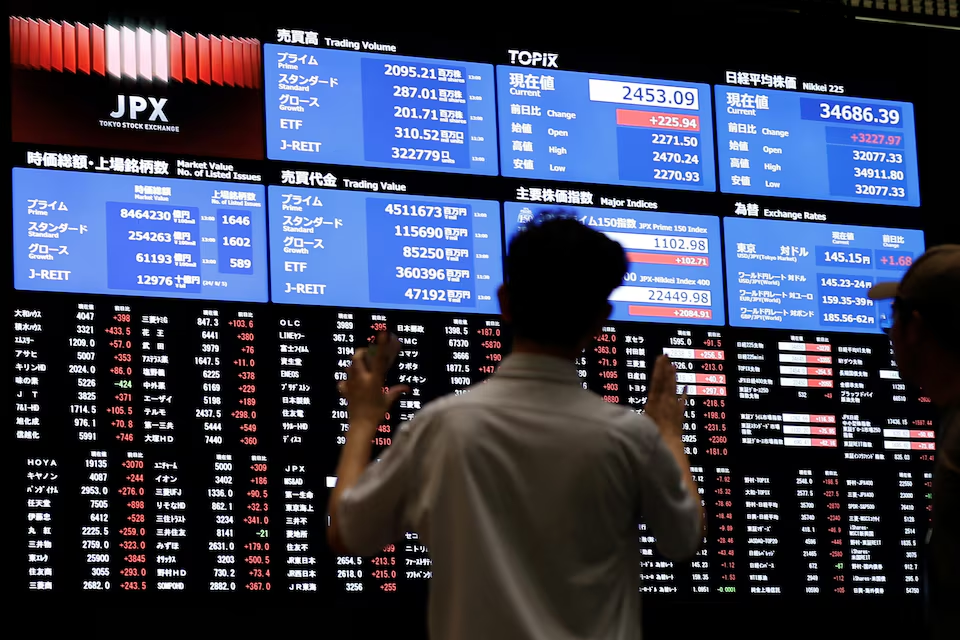As European markets prepare to reopen following the Christmas holiday, optimism appears to be building among investors. Euro Stoxx 50 futures climbed 0.4% early Friday, signaling a positive start for the region’s equities.
This upswing aligns with gains seen in Asia, where a rally among Japanese exporters helped push the MSCI Asia Pacific Index higher for the fifth consecutive session, marking its longest winning streak since July.
A significant driver of the Asian market rally was the performance of Japanese equities. Shares in Tokyo surged after the yen weakened to a five-month low of 158 per US dollar on Thursday. This drop followed comments by Bank of Japan (BOJ) Governor Kazuo Ueda, who avoided offering a clear indication of potential interest rate changes in the coming months.

The yen recovered slightly on Friday after Japan’s Finance Minister Katsunobu Kato reassured markets, stating that the government would take appropriate measures to counter excessive currency movements. Meanwhile, economic data released Friday painted a mixed picture.
Tokyo’s inflation accelerated for a second consecutive month, and retail sales surpassed expectations, suggesting the BOJ may need to continue considering policy tightening.
READ ALSO: WHO Director-General Narrowly Escapes Airstrike at Sanaa Airport, Yemen
However, a summary of opinions from the BOJ’s December meeting revealed divisions among policymakers about the timing of future rate hikes, reflecting ongoing uncertainty about the global economic landscape, particularly in the US.
Hong Kong and mainland Chinese equities fluctuated, while Australian shares moved higher. In contrast, South Korean stocks declined, weighed down by the country’s ongoing political turmoil.

Despite the recent rally in parts of Asia, some investors remain cautious. Xin-Yao Ng, an investment director at abrdn, noted the delicate balance, saying, “I think investors will continue to tread cautiously around Asian stocks going into 2025.“
Ng added that potential trade policies, including the possibility of new tariffs by former US President Donald Trump, could further impact Asian markets indirectly through inflation and trade dynamics.
READ ALSO: South Korea Opposition Plans to Impeach Acting President, Han Duck-soo
In the US, markets saw a quiet post-holiday session on Thursday. The S&P 500 ended flat, while the tech-heavy Nasdaq 100 slipped 0.1%.
Mixed jobless claims data contributed to the subdued mood. Initial unemployment claims ticked down to 219,000 for the week ending December 21, but recurring claims climbed to their highest level in over three years, signaling potential challenges for the labor market.

Treasury yields remained steady, while the dollar index continued to hover near its best performance since 2015. Meanwhile, Bitcoin edged higher after its recent rally appeared to lose momentum earlier in the week.
Charu Chanana, Chief Investment Strategist at Saxo Markets, offered a word of caution: “Wall Street and Asian markets being so quiet despite strong holiday sales momentum in the US is sending cautionary signals for 2025.“
Chanana pointed out that Asian markets will need to navigate headwinds such as a slower-than-expected Federal Reserve rate cut cycle, a strong US dollar, and domestic challenges like those seen in South Korea.
Discover more from Cine critique
Subscribe to get the latest posts sent to your email.

